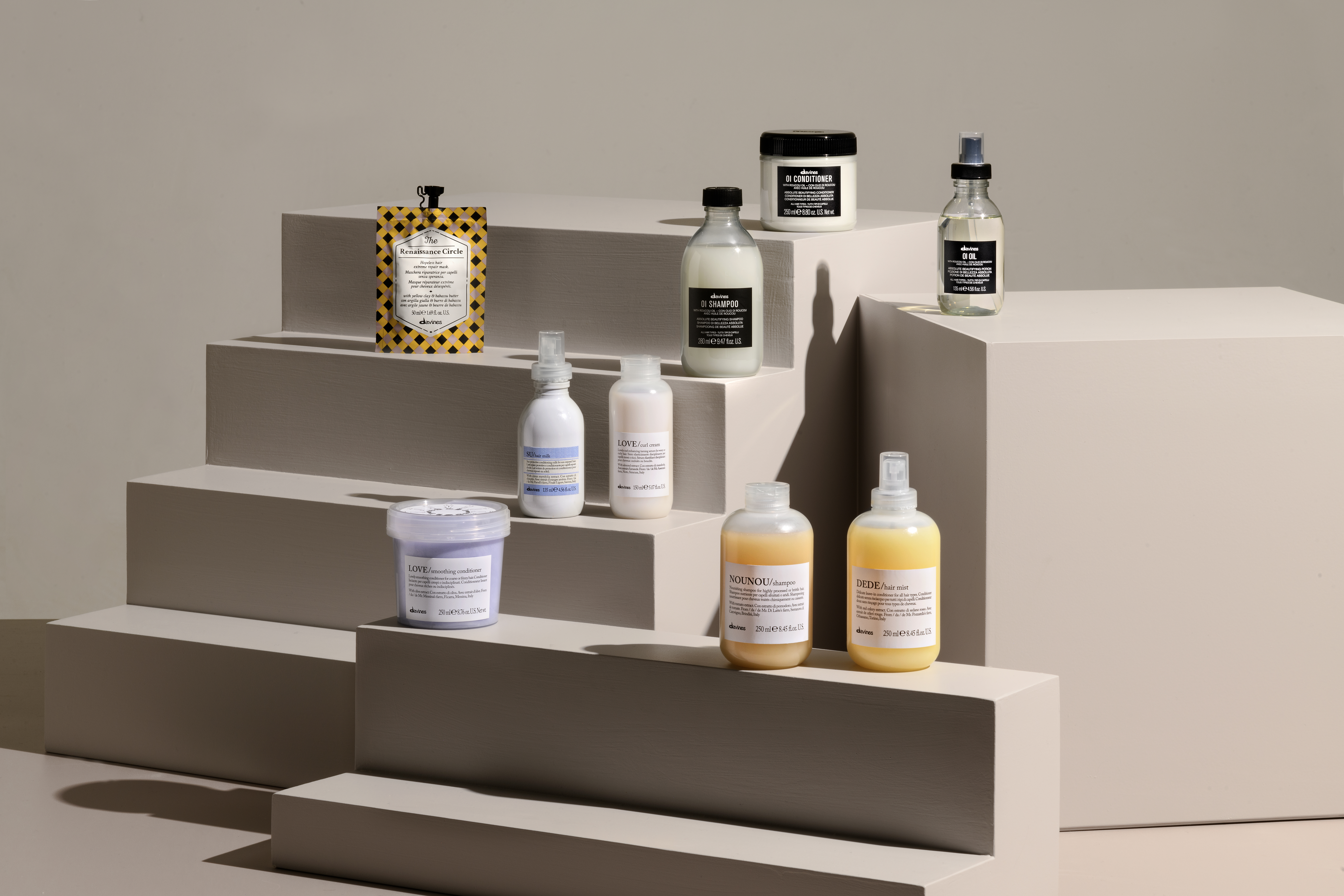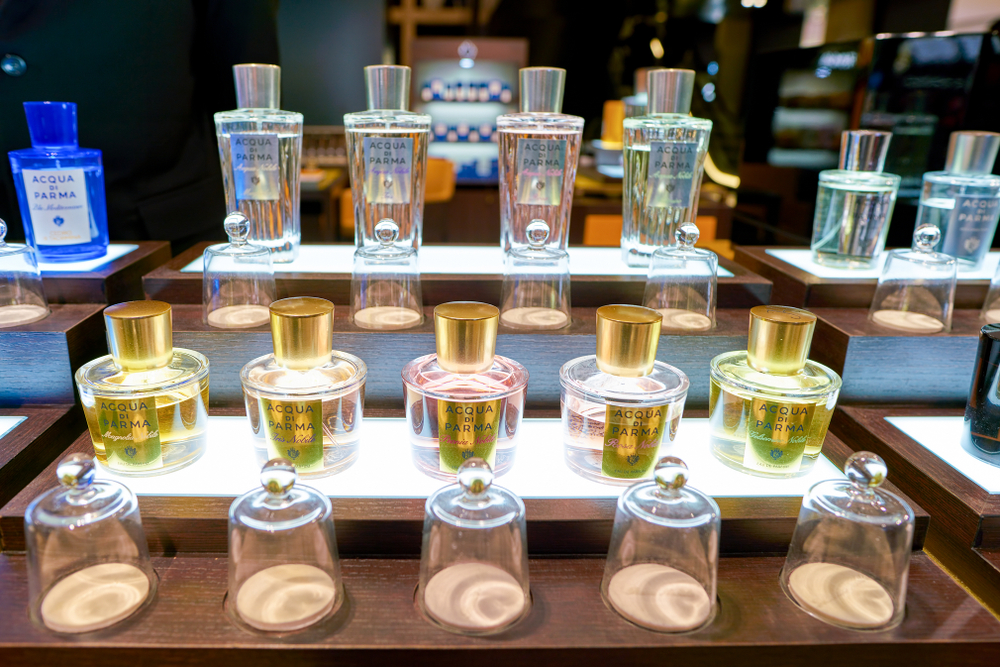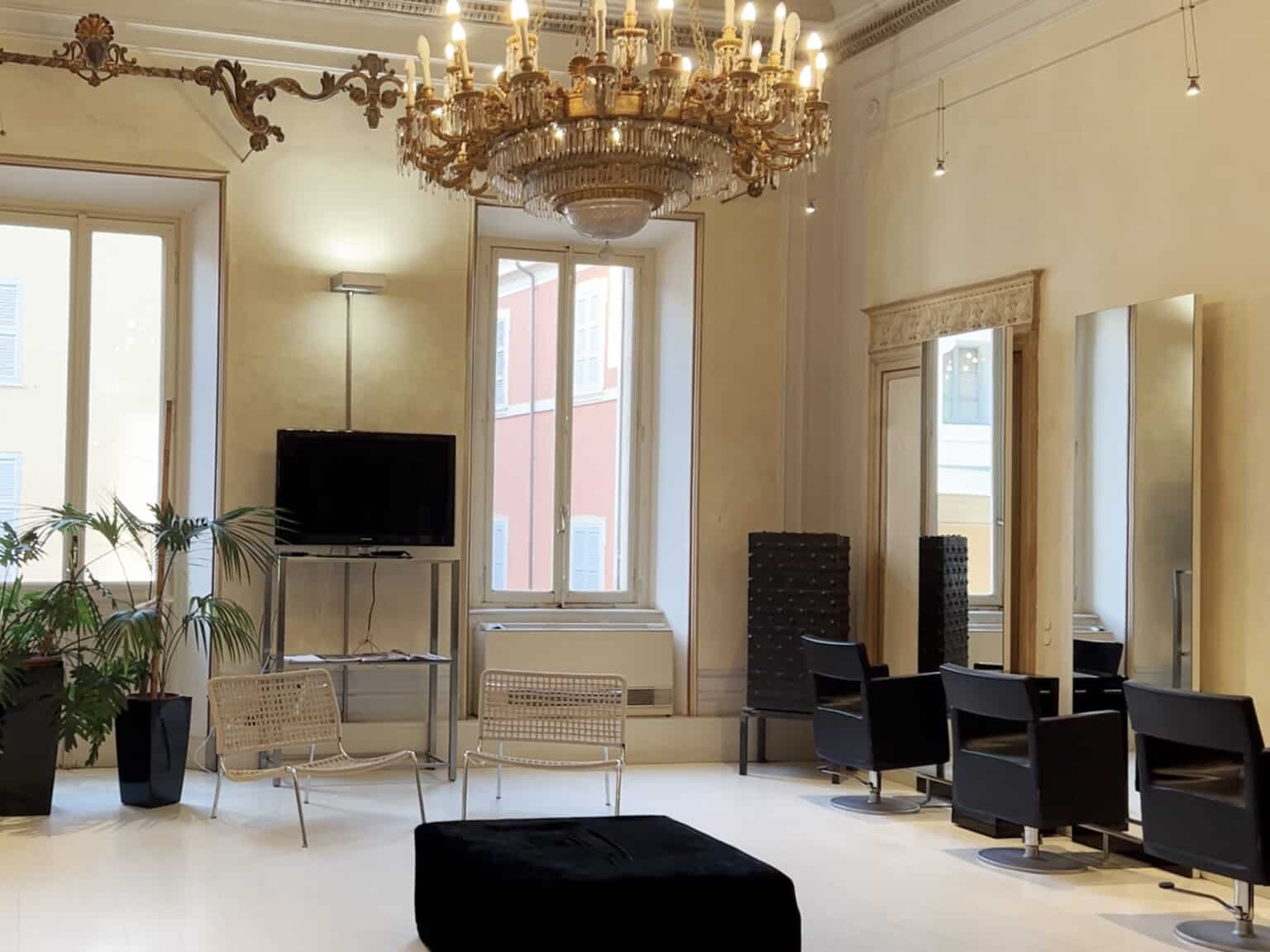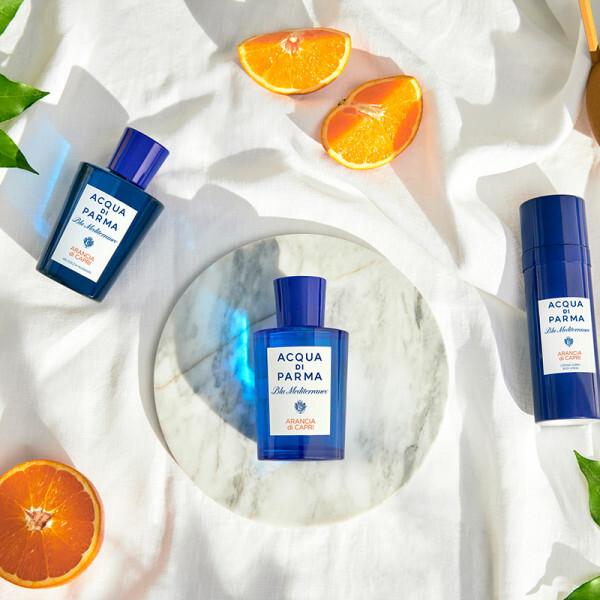There’s no question about it: Parma is a culinary destination. In the university town of 189,000, there are more than 130 producers of the famous cured pork — Prosciutto di Parma.
Spanning ham with protected origin (DOP) status, cheese (Parma Parmigiano-Reggiano is also DOP), and pasta (multinational Barilla began in Parma in 1877), agriculture supports 30% of Emilia-Romagna’s second largest city’s workforce, according to UNESCO.
But Parma’s fields are fertile for another business — hair care and cosmetics — and the area’s international reputation in the industry is growing.
For centuries, the city has been home to apothecaries with lavish interiors and long histories of perfumery, like the ex-pharmacy of San Filippo Neri (now a cultural center accessible via guided tour). Throughout 2020 and 2021, when Parma was tapped as Italian Capital of Culture, the local chapter of CNA (Italian Confederation of Craft Trades and SMEs) ran an under-the-radar publicity campaign — overshadowed by the pandemic — that highlighted the city as a perfumery hub.
But it’s increasingly noted for its products with more global reach. Here in the Po Valley, you’ll find the site of sustainable agricultural experimentation and herb harvesting for a major beauty brand. The Parma area is also the origin of a perfume created by a Parmense Baron in 1916, a coveted celebrity hair stylists’ oil made from grape seeds and rosemary, and shampoo infused with plant antioxidants.
After your Parma aperitivo of prosciutto and Parmigiano-Reggiano, try another type of local treat, with products from these three beauty brands. While they make great souvenirs to take home from Emilia-Romagna, some of the brands’ items can be found in the US, too.
Davines Group

Silvana and Gianni Bollati first crafted hair products in their Parma home’s basement in the 1980s. But the company that started out making door-to-door deliveries in a Fiat 238 van is now global, run by the couple’s children, Davide and Stefania. In 2023, Davines Group published figures of €230.6 million in revenue for 2022, with nine offices on three continents. In addition to its line of shampoo and other hair care products for the Davines brand, the company launched a skincare line, Comfort Zone, in 1996.
Davines and Comfort Zone’s sustainable packaging, whimsical black line illustrations, and use of ingredients such as Noto almond and Messina olive extracts from Sicily for its 500 formulas are all part of its focus on beauty and sustainability. Its headquarters, Davines Village, emerges from fields and flower and herb gardens off Italy’s main highway, the Autostrada del Sole, among long stretches of agriculture.
It’s here that the company started the European Regenerative Organic Center in 2021 on land across the street from its corporate offices, in partnership with the US-based Rodale Institute. Its research focuses on crops to improve plant and soil quality, such as putting garbanzo beans in the same plot with chamomile, lavender, and lemon balm. Barilla even joined the project in May 2023, adding wheat to the experimentation. Beyond Italy, the company’s sustainable practices include collecting the same amount of plastic in the Philippines, Brazil and Indonesia, as it uses to ship products from its warehouses.
You’ll find Davines at hair salons throughout Italy and at select spots in the US, or you can order both brands online.
Acqua di Parma

While Davines is ever-present in Italian hair salons, Acqua di Parma is a brand that you’re likely to see throughout Italy at luxury retailers, airport duty-free shops and even in high-end hotels. Its Colonia scent — characterized by a combination of orange, lemon and bergamot — crafted in 1916, is still among its best-known products. Inspired by his experiences in Paris, London and New York, Baron Carlo Magnani invented the formula that’s now owned by LVMH (the group that runs Louis Vuitton, Dior and Bulgari, among other luxury brands). Even with this corporate backing, Acqua di Parma is still manufactured in Italy.
Beyond the iconic colonia with its Art Deco-inspired design, Acqua di Parma now spans body lotion, shampoo, candles and leather goods — some among the complimentary amenities at the Four Seasons hotel in Milan. In Parma, look for the brand in about half a dozen stores, or find it in other major Italian cities. In the US, it’s in department stores and boutiques, or you can order Acqua di Parma online.
Rossano Ferretti

In a 15th-century palazzo in the historical center of Parma is a hair salon with celebrity status. Rossano Ferretti, whose grandparents ran a salon and barbershop in Campegine, a 5,000-person village just east of Parma, opened the palazzo salon in 1990 upon returning home after a stint abroad.
But good luck trying to get an appointment with Ferretti, whose clients include Reese Witherspoon and British royals. Aside from the long wait list, the cut might cost more than your ticket to Italy. Ferretti even has a reality TV show in the works, “Hairstyle: The Talent Show.”
If you don’t want to shell out more than $1,500 for salon time with Ferretti and his signature “Invisible Haircut,” or a few hundred for a cut by one of his method-trained stylists at one of 19 locations worldwide (many at five-star hotels), you can try his organic, vegan products, made in Parma. Like Davines, Rossano Ferretti aims to use natural ingredients that are easy on your hair and the environment. The complete Ferretti hair care routine — whether you want hydration, volume or hair loss prevention — includes a shampoo, hair mask and spray with ingredients like avocado and camelia.
Whether for your bathroom cabinet or your charcuterie plate, when it comes to extra indulgences, Parma has you covered.









